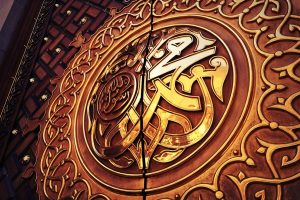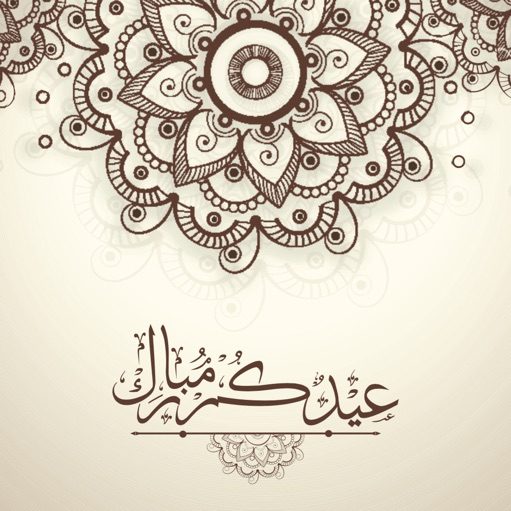
We continue with the serialisation of the epic lecture delivered by the Second Worldwide Head of the Ahmadiyya Muslim Community later published as a book titled The Economic System of Islam. After explaining the concept that sovereignty of all things belongs to God, in this second part in the series the system of governance in Islam and the various world economic systems are explained. To read part one visit our website www.reviewofreligions.org.
Basic Precepts of Governance in Islam
The economic system of Islam requires a specific governance environment, as no system, however good, can be effective outside its appropriate environment. Islam is the first religion of the world that:
– Advocates a system of representative government, with the capability of the candidate as the fundamental criterion for election.
– Defines authority as a trust, not a right.
– Declares that the basic goal of government must be to protect the honour, life and property of citizens.
– Enjoins the rulers to judge amongst individuals and communities with absolute justice and impartiality, reminding them that they are ultimately answerable before God.
In short, there is no room for hereditary kingship in Islam. It unequivocally declares that: “Verily, Allah commands you to make over the trusts to those entitled to them.” Hence, Islam does not approve of hereditary kingship. Instead, Islam enjoins that the trust of governance be given by elections to people who are most capable of carrying that burden. It is the duty of Muslims to evaluate carefully candidates’ capabilities and entrust the authority to govern to the best amongst them.
As long as Muslims abided by this injunction of the Holy Qur’an, they elected their rulers who met the prescribed criteria. In the future, too, when Muslims come to follow the injunction of the Holy Qur’an, they would be obligated to hold elections to choose people to run the affairs of the country. Moreover, they would be expected to abstain from electing someone solely on the basis of his family background, influence, or wealth. They should also not elect someone simply because he is backed by a powerful group. The basic consideration for electing someone should be his ability to manage the country’s affairs. At the same time, God enjoins the elected rulers that they rule with equity and justice. This was the spirit that kept Muslims inclined towards justice and democratic norms despite the rise of kingship among them.
Historical Illustrations of Islamic Precepts of Governance
Prayer of Malek Shah
In his Decline and Fall of the Roman Empire, the renowned Christian author, Gibbon, narrates the story of a Turkish king, Malek Shah, who was only a youth when his father (Alp Arsalan) passed away. Following the demise of his father, three other individuals—Malek Shah’s brother, an uncle and a cousin—rose as claimants to the throne, leading to a civil war. Nizamud-Din Toosi, who was Malek Shah’s vizier [minister] and happened to be a Shia, persuaded Malek Shah to visit the tomb of Imam Musa Riza to offer prayers. After the prayers, Malek Shah asked his vizier, “What had been the object of his secret petition?” The vizier replied that he prayed to Allah “That your [Malek Shah’s] arms may be crowned with victory.” “For my part,” replied the generous Malek, “I implored the Lord of hosts that he would take from me my life and crown, if my brother be more worthy than myself to reign over the Moslems.” Gibbon is a Christian historian, deeply prejudiced against Islam, yet he was compelled to say regarding this incident that historically: “It would not be easy to extract a sentiment more pure and magnanimous than is contained in the saying of the Turkish prince.”
Where did this spirit come from? How was it embedded in the Muslims’ hearts that governance was not the personal right of any individual, that it was a trust that a country’s people confer upon the most deserving, and that it was the ruler’s duty to govern with justice and fulfil the rights of individuals? Such noble ideology and splendid examples exist amongst the Muslims because the Holy Qur’an from the very beginning taught Muslims that authority is a trust that should only be handed over, by elections, to the deserving person. It cannot be seized by some as their hereditary right, nor can it be passed on according to any criteria other than merit.
Similarly, the person who is granted this trust must fulfil all the obligations associated with it. Anyone who does not fulfil these obligations shall stand before God as a condemned man. Muslims always kept in their minds the following verse:
[1] ![]()
That is, only those individuals should be given this trust who are worthy of it and have the capability to deal with administrative issues.
The people who were given this trust always remained mindful of the Qur’anic injunction that they must rule with integrity and justice. They knew that if they were unmindful of justice and were not scrupulously honest, or otherwise became unworthy of the trust reposed in them, they would be answerable before God to face retribution for their transgression.
Anguish of Hazrat Umarra at His Deathbed
The above-mentioned Quranic injunctions were so deeply instilled in the personality of Hazrat Umarra that others might find it astounding. He was the second Khalifah of Islam, who made tremendous sacrifices for the progress of Islam and Muslims. Even those European writers who routinely criticise the Holy Prophetsa—accusing him (God forbid) of dishonesty in his dealings—cannot but admit that the way Hazrat Abu Bakrra and Hazrat Umarra worked tirelessly and selflessly in the service of mankind is unparalleled in history. These authors are especially complimentary to Hazrat Umarra. According to them, he was a man who worked with total dedication day and night to spread the message of Islam and to advance the Muslim cause. However, despite his tireless effort, countless sacrifices, and the pain and suffering he endured for the sake of Muslims, what was his assessment about himself? He remained mindful of the following verse that:

And:

That is, when you are appointed to an office of trust by the decree of God, and your countrymen and brethren appoint you to the responsibility of governance, it is incumbent upon you to rule with justice.
How painful is the following episode of his life! When a person—out of foolishness and the misperception that Hazrat Umarra had been unjust—fatally stabbed him, Hazrat Umarra lay in anguish on his deathbed with the following words on his lips:
“O my Lord: I ask for no reward: only be pleased to call me not to account for my shortcomings.”[3]
His only thought was: “O Lord! You gave me this authority and trust. I do not know if I truly fulfilled my duty. Now the time of my death is near and I am about to leave this world and return to You. O my Lord! I do not ask for any compensation for my services and I do not seek any reward. Instead, I only seek your mercy. If I have done any wrong in discharging the responsibilities that were assigned to me, I seek your forgiveness.”
Hazrat Umarra was a man of such high calibre that it is hard to find other examples in history that come close to his sense of equity and justice, yet he died under the weight of the Qur’anic injunction:[4] 
Even at his death, he was restless and troubled. He was not satisfied with all the services that he had rendered for the betterment of his people and for advancing the cause of Islam. He had given such tremendous service for his people that not only his own people, but others also recognised them. His services were appreciated not only during his own time but also 1300 years later and by people who were otherwise inclined to attacking his master. Yet, all of these services were nothing in Umar’sra own eyes and he restlessly pleaded to God: “I was given a trust but I do not know if I fulfilled that trust as it was meant to be fulfilled. Therefore, I beseech You to forgive my faults and save me from the punishment.”
I have deemed it necessary to describe at length the general environment needed for establishing the Islamic economic system, because no matter how good a seed is, it would not mature into a tree unless the soil was appropriate for its growth and nourishment. On the other hand, even an ordinary seed, in a nourishing environment, could grow and mature into a plant. Thus, the general environment described above is the precondition for the Islamic economic system intended to serve the public interest.
Types of Economic Systems in the World
The economic systems prevalent in the world can be classified into three types. There is one type of economic system that is not governed by any specified rules and regulations, and can be called a ‘system’ only for the sake of convenience. Some nations and countries never spelled out how their economic system would be run and had no specific plan or policy towards that end. Such societies do not distinguish between individual and national goals, and in the absence of a set policy, adopt any idea that appears convenient or practical.
The second system is nationalistic in its approach, that is, one where nations seek only to maximise their collective national interests.
The third system is individualistic, i.e., it gives individuals an opportunity to work on their own for the betterment and progress of their country. Workers as well as owners of capital are permitted to struggle for their rights and pursue their self-interest. Employees have the right to negotiate their wages and benefits with the management, which in turn is expected to institute clear rules and regulations governing workers. Thus the emphasis in this system is on the individual.
These are the three basic economic systems that exist in the world today. The first system is not bound by any definite laws or rules; the second system is nationalistic in its approach, while the third is driven by individualism. Islam does not accept the first system at all, for the Islamic system is based on prescribed principles and laws, which people are enjoined to follow. Islam relies on purpose and wisdom, and does not approve of indiscriminate adoption of economic policies. A system without well-designed laws is akin to feeding off of wild vegetation that grows on its own. The Islamic system, on the other hand, can be compared to a farmer who follows a set routine for sowing seeds, irrigation, and nurturing plants. He knows what to keep in his orchard and what to throw out.
Teachings of Islam for Establishing a Just Society
The foundation of Islamic teachings that I described earlier is essential for understanding its economic philosophy. I elaborated on those concepts because the Islamic economic system cannot succeed in the absence of its necessary environment.
As I have already mentioned, Islam does not recognise a system that is not based on law. Instead, Islam presents a path that is a combination of the other two systems (nationalistic and individualistic). As such, the fundamentals of the Islamic economic system are the same as those of Islam itself, as mentioned above.
Endnotes
- Holy Qur’an, Surah Al-Nisa, Verse 59.
- “Verily, Allah commands you to make over the trusts to those entitled to them”. Holy Qur’an, Surah Al-Nisa, Verse 59.
- Usdul-Ghabah, Vol. 4, 75.
- Holy Qur’an, Surah Al-Nisa, Verse 59.




Add Comment